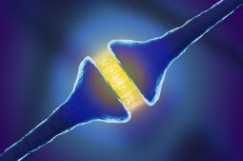Author: DynamicBrain Inc.
Publication: Monthly Newsletter
Published Date: November 19, 2020
I would like to share some heart-warming feedback that we’ve received from one of our French-speaking users from Quebec, Canada. She has kindly allowed us to share her experience publicly, thinking it may help others with similar conditions. Please feel free to pass this on.
Translated into English:
Thank you!
I was looking for exercises to help me after a stroke that I had last December. I did not have paralysis, but I had a quadrantanopia, which is a loss of part of my field of vision …
It was one of my daughters who found your program for me to try. The first exercise, which helped me a lot to recover, was the one with different birds appearing in various parts of the screen [Hawk Eye]. A month after my stroke, with all the exercises I could find, I managed to recover enough of my visual field to regain my driver's licence.
I am sharing this as I’m sure there would be a need for people like me who would like to reclaim their field of vision …
These are life-changing experiences!
Please don’t forget your BrainHQ training today. If you don’t have full access, you can subscribe here.

Kind regards, Frieda Fanni
President
DynamicBrain Inc.
DynamicBrain Inc. is the Canadian partner of Posit Science Corporation providing brain fitness program BrainHQ in English and French.
|
 |
 Turn down the volume!
Turn down the volume!
Do you find it hard to concentrate when there’s too much background noise? Well, it might surprise you to hear that your brain actually has a “molecular volume knob” to keep electrical signals in check. A recent study found that this molecular control system helps with learning and memory. The study’s findings may help us identify ways of managing neurological disorders like epilepsy, Alzheimer’s disease, and Parkinson’s disease.
Check out the full article
here.
 Staying on course
Staying on course
Being able to stay focused on a goal that requires a great deal of time, attention, and effort can feel like a marathon, especially if you’re overexcited or easily distracted. The attention focus and impulse control involved can be a challenge for both intellectually and physically demanding tasks. Until recently, scientists weren’t sure which neural pathways were responsible for attention and impulse control. New research points to two distinct pathways.
Read more
here.